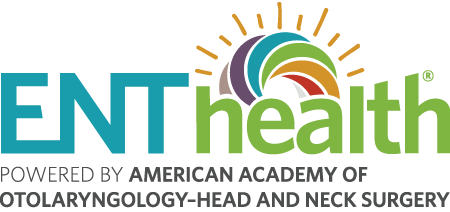Menu
Dry Mouth Syndrome
Dry mouth syndrome, also known as xerostomia, is very common and affects up to 30 percent of the population. It is more common in women and patients over the age of 65.
Dry mouth syndrome is often caused by a decrease in saliva from the salivary glands. Not only does saliva provide moisture to the oral cavity, it also helps patients swallow and digest food, protects against reflux, and has antibacterial effects that help prevent oral infections as well as dental disease.
What Are the Symptoms of Dry Mouth Syndrome?
Patients with dry mouth syndrome can develop many symptoms from the lack of saliva in the mouth and may experience:
- Mouth discomfort and dryness
- Burning of the tongue
- Cracked, dry lips
- Bad breath or halitosis
- Difficulty with swallowing or digestion
- Taste changes
- Speech changes
- Increase in dental plaque and cavities
- Thrush infection (also known as candidiasis which is a yeast infection in the mouth)
css id:
What Causes Dry Mouth Syndrome?
There are a variety of causes of dry mouth syndrome. Aging leads to decreased salivary flow and can contribute to dry mouth although it is usually not the only cause. There may also be a hormonal component as it is more often seen in menopausal women. Many diseases can cause a decrease in oral saliva. Patients with diabetes, end-stage renal disease, Hepatitis C, Parkinson’s disease, Alzheimer’s disease, and HIV are more likely to have dry mouth syndrome. Patients who have had radiation to the head and neck often have dry mouth syndrome. Patients who smoke tobacco, have dentures, and are chronic mouth breathers are also more likely to experience dry mouth.
There are also over 500 medications that can cause dry mouth. Blood pressure medications, seizure medications, antidepressants, and opioids are some of the most common medications that can lead to dry mouth. In addition, interactions between certain medications can worsen the dry mouth. However, it is important to never stop a medication until discussing it with the prescribing physician first.
Autoimmune diseases such as rheumatoid arthritis and Sjogren’s disease can cause dry mouth syndrome. In Sjogren’s disease, patients typically have both dry mouth and dry eyes. Certain blood tests are elevated in autoimmune diseases and are often tested in patients with dry mouth. Sjogren’s disease is confirmed with a biopsy of the minor salivary glands on the inside of the lip which an ENT (ear, nose, and throat) specialist, or otolaryngologist, can do in the office.
css id:
What Are the Treatment Options?
Treatment of dry mouth syndrome depends on each patient. Diagnosis of dry mouth is often based on a patient’s history and physical examination. An ENT specialist can help figure out the cause of the dry mouth and see if the salivary glands are producing enough saliva. Lab work and potentially a minor salivary gland biopsy to evaluate for Sjogren’s disease may be recommended. Imaging studies are rarely needed.
It is important to discuss all medications with your physician to see if any of these are contributing to the dry mouth. Better control of underlying diseases can also help. For example, patients with diabetes benefit from good glycemic control. If an autoimmune disease is diagnosed, patients are referred to a rheumatologist, who is a board-certified internist or pediatrician who is qualified by additional training and experience in the diagnosis and treatment of arthritis and other diseases of the joints, muscles, and bones. If there is an overlying thrush infection, antifungal medication may be used.
Some therapeutic options are helpful no matter the cause. Patients should increase their daily water intake, take frequent sips of water, and avoid liquids with caffeine. Avoiding dry, acidic, and salty food, as well as tobacco and alcohol, is helpful. A humidifier while sleeping can add moisture to the oral cavity at night when saliva flow is the lowest. Daily dental care and regular visits with the dentist are important in order to prevent dental disease.
Certain over-the-counter salivary substitutes and lubricants can provide symptomatic relief. These come in different forms including oral rinses, gels, sprays, and lozenges. Sugar-free candies and chewing gum can also help stimulate salivary flow. Acupuncture may also provide some relief, but studies are mixed on its benefits. Both pilocarpine and cevimeline are medications that can be used to treat dry mouth syndrome. These medications can have some adverse side effects and are not recommended for patients with certain underlying diseases, so it is important to discuss your own situation with a physician before starting any of these medications.
css id:
What Questions Should I Ask My Doctor?
- Should I be concerned about a more serious issue causing my dry mouth?
- Do I need blood work or a biopsy to rule out an autoimmune cause of my dry mouth?
- Could any of the medications that I am currently taking be causing the dry mouth?
- Do I need to see any other healthcare providers or specialists for my dry mouth?
- What treatment options are available to me for my dry mouth?
References
Napeñas, J.J, Brennan, M.T, & Fox, P.C. Diagnosis and treatment of xerostomia (dry mouth). Odontology. 2009 Jul;97(2):76-83.
Tanasiewicz M, Hildebrandt T, & Obersztyn I. Xerostomia of Various Etiologies: A Review of the Literature. Adv Clin Exp Med. 2016 Jan-Feb;25(1):199-206.
Copyright 2025. American Academy of Otolaryngology–Head and Neck Surgery Foundation.
Last reviewed February 2022.

The head and neck include some of our body’s most vital organs, which can be especially susceptible to tumors and cancer. In addition to cancers of the head and neck, ENT specialists treat neck masses, Grave’s disease, and more.
Related Be ENT Smart Articles
The information on ENThealth.org is provided solely for educational purposes and does not represent medical advice, nor is it a substitute for seeking professional medical care.
Get the Care You Need
Find an ENT
Think you need to consult an ENT specialist? Find someone with the expertise and location that’s best for your needs.
Be ENT Smart
Learn how to stay ENT healthy, prevent problems, and manage existing conditions to improve your, or a loved one’s, daily life.
About ENThealth.org
Find out more about the community of physician experts who can help you to Be ENT Smart and how the information was developed.
Copyright 2025. American Academy of Otolaryngology–Head and Neck Surgery Foundation

